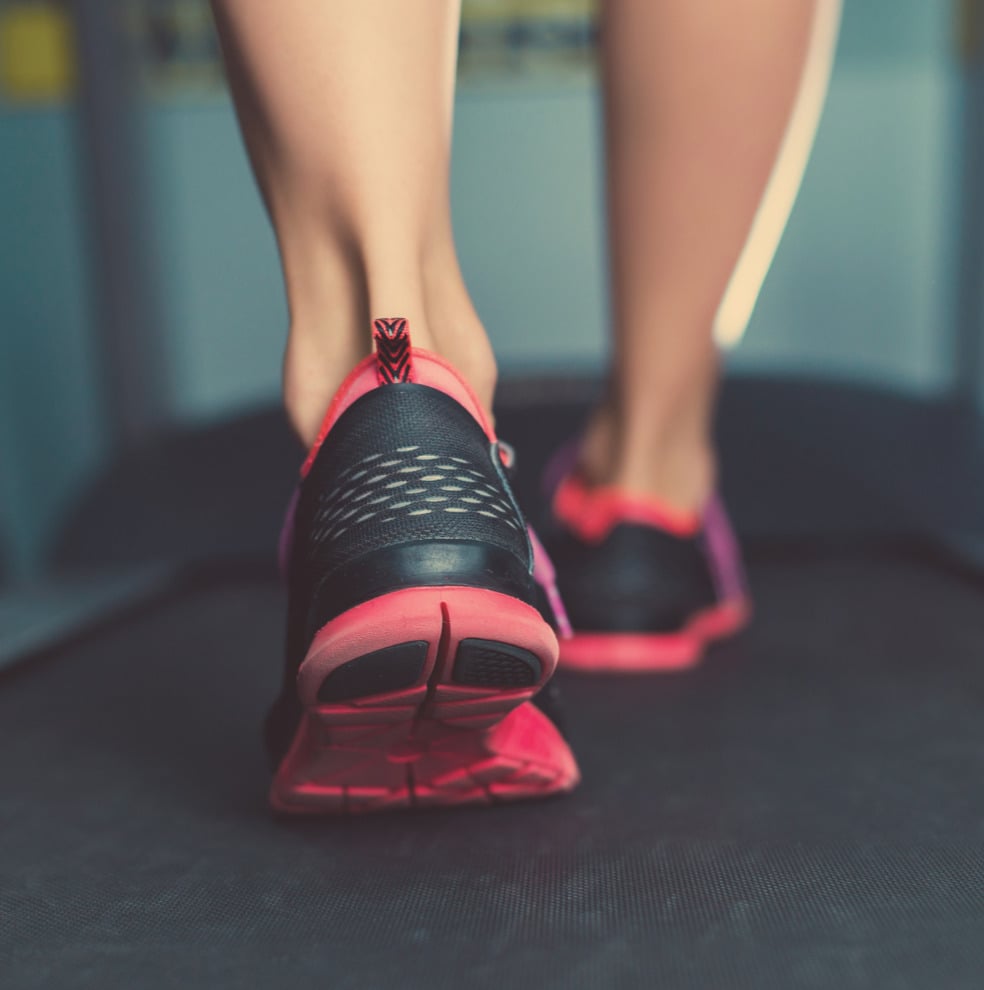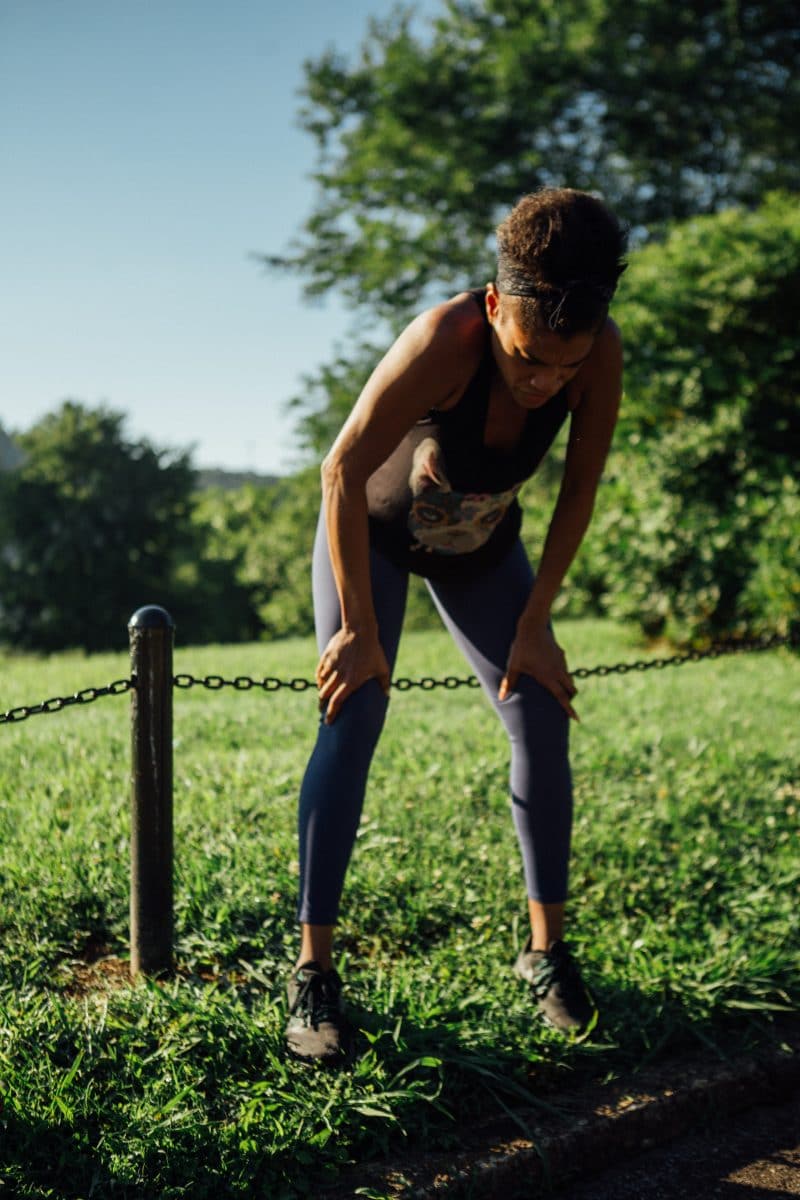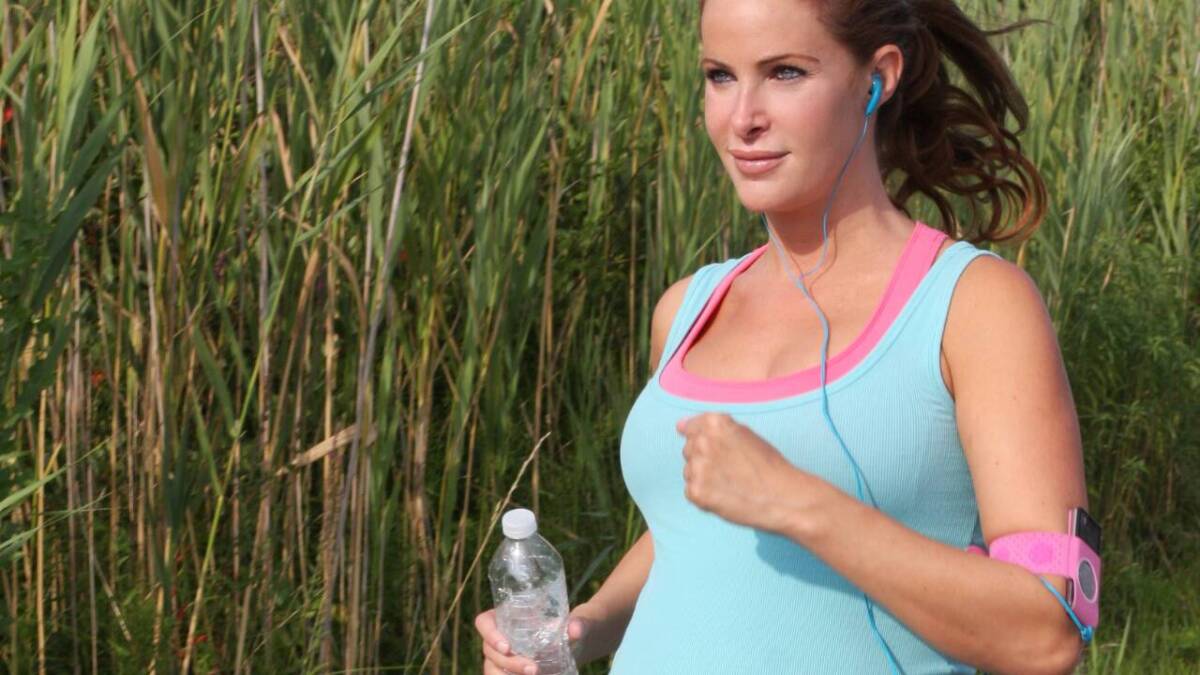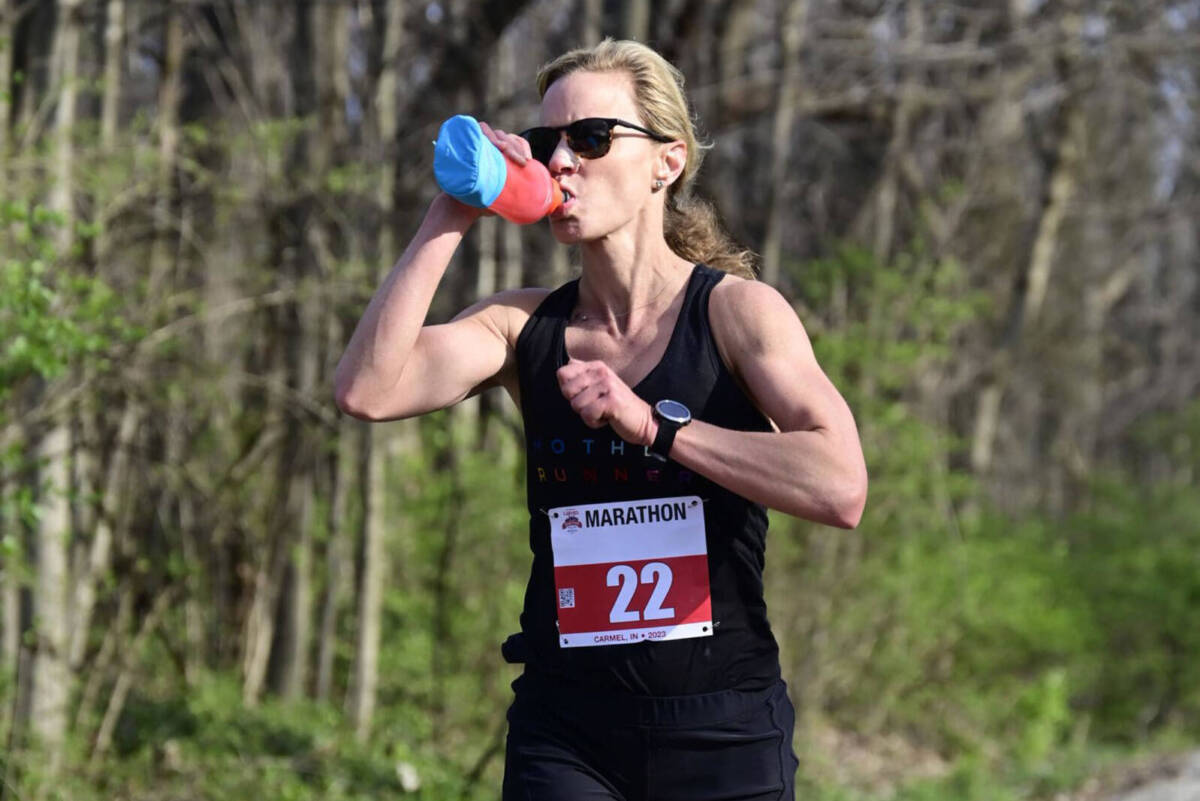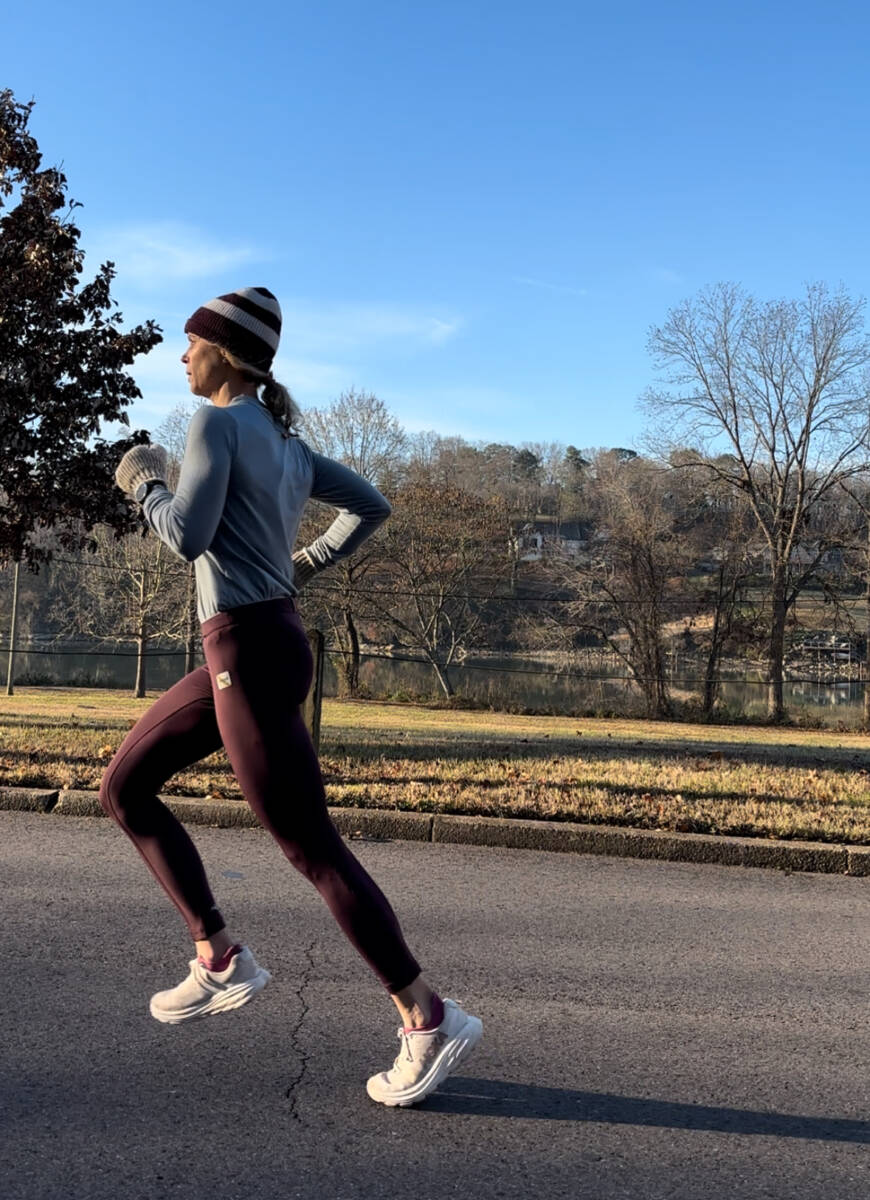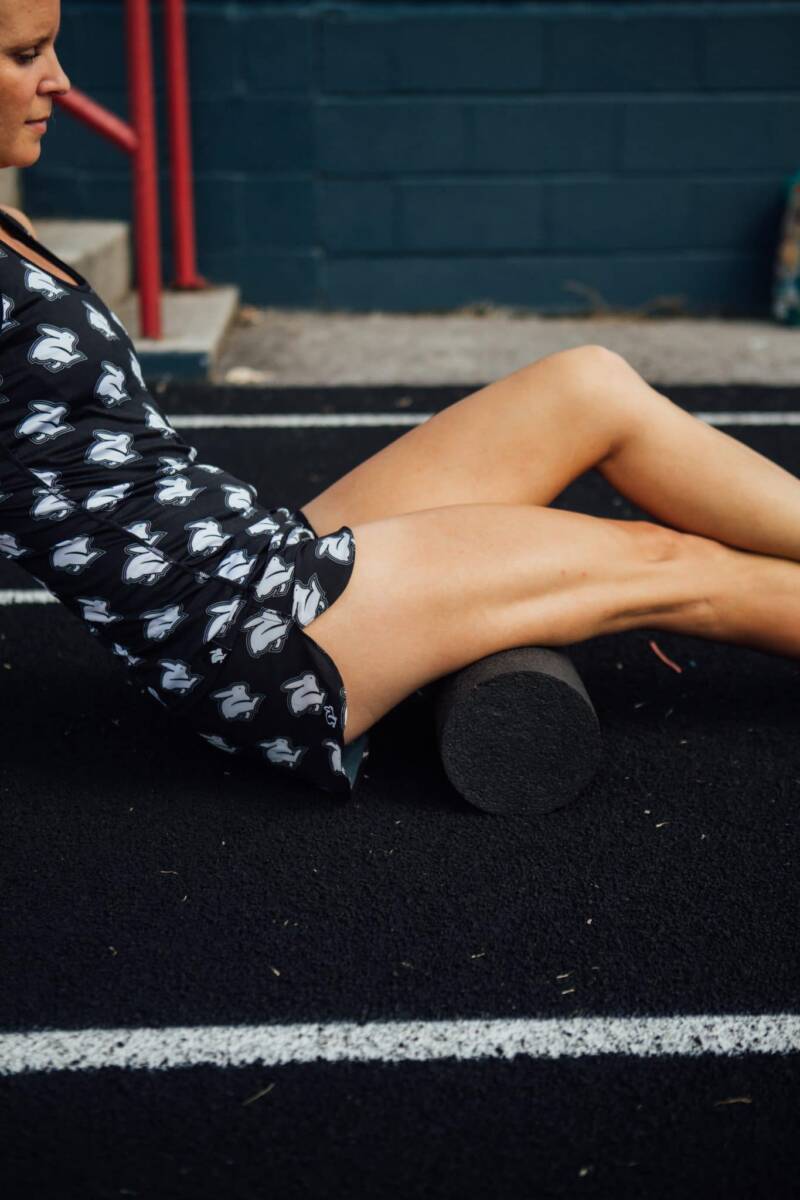Can Breastfeeding Lead to Bone Injuries Postpartum in Runners?
Pregnancy and breastfeeding can lead to bone injuries postpartum, particularly if you breastfeed beyond 12 weeks and have a history of missed periods or bone loss. Experts advise postpartum runners to focus on getting in proper nutrition, gradually increasing training load, and listening to your body to avoid injuries running postpartum.
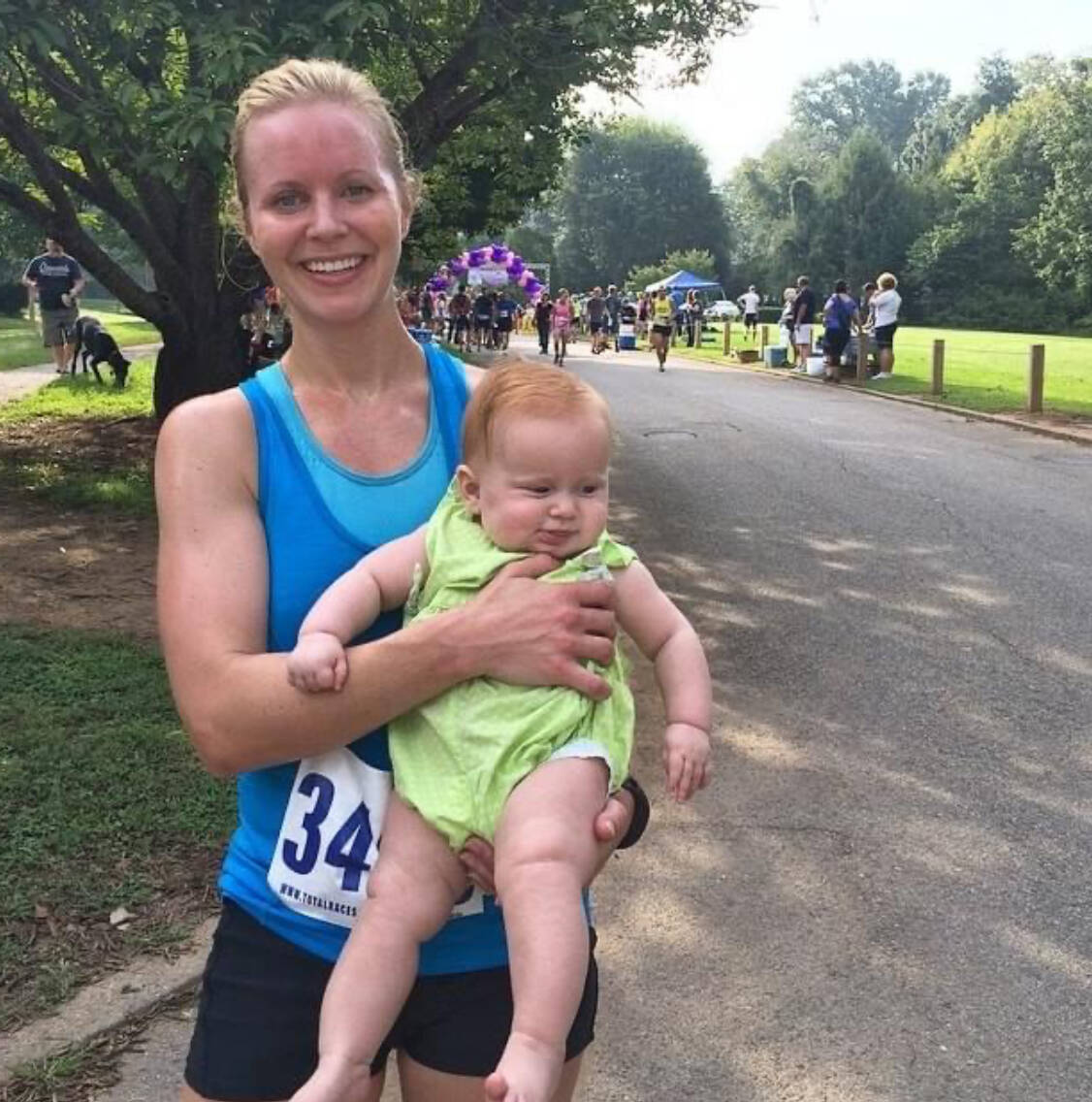
Reviewed by Dr. Jessica Rachel Starr, endocrinologist —-The other day I had an Instagram follower tell me she got a bone stress fracture and couldn’t run. The potential reason? Breastfeeding. She lamented she wish she knew she was more at risk for bone stress injuries from breastfeeding.
Former pro runner for adidas, Neely Gracey, got a femoral neck stress fracture ten months after having her first son. Indeed, it is not completely uncommon for many runners, elite or recreational, to suffer bone injuries postpartum.
Skip Ahead:
- Can pregnancy cause bone weakness?
- Can breastfeeding cause bone weakness?
- Are you at greater risk for bone injuries after having a baby?
- So, does this mean runners shouldn’t breastfeed?
- Are there ways to prevent postpartum stress fractures?
- 3 Ways to Prevent Bone Injuries Postpartum
Breastfeeding & Bone Loss
But I want to be clear—this article is not meant to fearmonger. Indeed, I nursed for three years straight and ran, and did not have any bone issues. This article aims to educate women about their bone health in the postpartum period so they can stay healthy.
The effect pregnancy and breastfeeding can have on our bones is an area in which more education is needed (along with pelvic floor physical therapy postpartum).
Dr. Jessica Rachel Starr, an endocrinologist specializing in metabolic bone and women’s health at the Hospital for Special Surgery, told me she has seen patients with bone issues that previous doctors missed the lactation link. “I had one patient who had a bone fracture that wasn’t healing. No one thought to ask her if she was still breastfeeding because her baby was a year old. But she was, and that was inhibiting her bone from fully healing.”
My hope that the information I share will help future fellow mother runners sidestep bone injuries postpartum because they know the risk—and they know the proper precautions.
Note: I am not a doctor, and if you have health concerns, you should go see yours. I did speak with Dr. Starr and consult published research articles to inform this piece.
Can breastfeeding cause bone weakness?
Yes, breastfeeding can cause temporary bone weakness in otherwise healthy bones.
Research shows that women who are breastfeeding will experience 4-6 percent of bone loss because of the lower amounts of estrogen and calcium loss in breast milk. Women who already have bone loss issues such as osteoporosis are at an increased risk if pregnant or lactating, research shows.
The risk for most women comes after about three months of breastfeeding, however, Dr. Starr explains.
“The body has protective mechanisms in place to maintain the calcium balance,” she explains. “Our bodies secrete a parathyroid hormone that tells our bodies to put calcium into bone. When we are nursing, our bodies secrete a parathyroid related peptide that makes sure there is enough calcium for both the breastmilk and the bone.”
After 12 weeks of nursing, the risk of bone loss increases when women are at peak milk production plus a prolonged state of estrogen deficiency (which rises and then falls at birth and stays low for lactation). Estrogen is critical for bone health. These two factors can lead women to a negative calcium balance, putting them at greater risk for bone injuries while breastfeeding.
It’s vital to note, recent large studies show that pregnancy and breastfeeding are not associated with increased risk of osteoporosis or fractures later in life, and may actually reduce the risk of osteoporotic fractures, according to the NIH.
Are you at greater risk for bone injuries after having a baby?
Yes, you are at greater risk for bone injuries after having a baby up to a year, depending on how long you are breastfeeding.
According to the National Institutes of Health, pregnant women will have a decrease in bone density particularly in the last trimester of pregnancy, as the mother’s calcium is used for the baby’s development. Breastfeeding prolongs the use of a mother’s calcium for her baby’s development.
Factors such as existing low bone density, RED/S (which leads to missed periods), a history of an eating disorder, lack of sleep, higher energy demand, and postpartum biomechanical changes can make you more at risk for bone injuries after having a baby, says Dr. Starr.
A 2019 study of 34 elite Norwegian athletes who returned to sport after having a baby found that four of them sustained stress fractures postpartum. A recent 2023 study found that among 42 elite runners, six had postpartum bone stress injuries.
So, does this mean runners shouldn’t breastfeed?
Runners should still breastfeed their babies as the benefits for both mother and baby far exceed the risks. In fact, research shows breastfeeding—even just for one month–may lead to a reduced risk of bone fractures later on. (This is in addition to the plethora of benefits for the health of both mother and baby including protection against certain illnesses and diseases.)
Weaning will lessen the demand for calcium from your body and return hormone levels such as relaxin and estrogen to pre-pregnancy levels, thereby lower your risk for bone injuries. With all things running and parenting, there are so many factors at play and the decision is completely individual for what is best for mother and baby! (Of course!)
Are there ways to prevent postpartum stress fractures?
Yes, there are ways to avoid bone injuries postpartum. Gracey and Dr. Starr share tips in how to stay injury-free postpartum.
4 Ways to Prevent Bone Injuries Postpartum
If you are concerned about having bone injuries postpartum and want ensure you do not have any—below are tips from Dr. Starr and Gracey to stay injury-free postpartum.
1. Check Your Bone Density
Dr. Starr suggests getting a bone density scan (DEXA scan) BEFORE you are pregnant to ensure you have good bone health.
This is especially true if you have a history of bone injuries including bone fractures and breaks, stress fractures, and stress reactions; if you missed your period for a prolonged period due to amenorrhea or relevant energy deficiency syndrome (RED-S); or suffered from an eating disorder or disordered eating.
2. Focus on good nutrition (and EAT!)
Seeing a sports nutritionist during pregnancy and/or postpartum can make sure your body is getting all the nutrients it needs to stay within a positive calcium balance, suggests Dr. Starr.
I spoke with Amy Stephens, registered dietitian in New York City, who works with elite runners, to provide the recommended nutrition guidelines. Postpartum runners want to ensure sufficient amounts of calcium, protein, and Vitamin D.
- Aim to get 1000 mg of calcium per day, ideally from foods, as recommended by the National Academy of Sciences. Calcium-rich foods include seeds, cheese (mozzarella and cottage cheese), yogurt, almonds, fish, beans, lentils, leafy greens like kale or spinach, whey protein, edamame, tofu, figs, milk, and calcium-fortified foods, and oranges. IMPORTANT! You can also supplement with calcium, but the body can only absorb so much at a time, so it is better to space it out.
- Stay hydrated which can aid in your overall calcium balance. Avoid too much sodium which can hinder calcium absorption.
- Include protein in every meal and snack. Protein needs are individual but you can get it from foods such as chicken, seafood, beans, eggs, soy, oats, broccoli, Greek yogurt, lean beef, tuna, quinoa, whey protein, lentils, turkey, fish, Brussel sprouts, seeds, nuts.
- Have a vitamin D level between 50 and 100. (This is always! Make sure you get your levels check with lab work. Many people’s vitamin D is too low, but you can also over-supplement, and it can be TOO HIGH!).
- DO NOT TRY TO LOSE WEIGHT!!! The weight will naturally come off. Do not cut calories and increase running while your body is healing from having a baby—and working overtime to feed that baby. This may result in injury.
3. Increase training conservatively
Your body is not only recovering from making a human and bringing it into this world AND being that human’s main food source, your life has also become a lot more demanding. You are not sleeping as you used to. Your body is moving and carrying things in different ways. Your energy demand is much much higher as a new mom.
Stress is stress on your body, so give it grace. Do not rush back to running at the level you were before having a baby. Gracey advises, “Keep that first year very controlled and within yourself mileage and workout wise. Listen to the body, do not push limits.”
She adds that sometimes the mind and the body are not in sync. “When I got my postpartum stress fracture my mind was ready to go and get back to intensity but my body was not and I should have heeded the warning signs.”
I am nodding my head. Working with a running coach can help you stay within your current limits.
4. Pay attention to fatigue levels.
Your body’s fatigue is a clue to how it is doing on the inside. Gracey wishes she had listened to her body’s fatigue levels leading up to her injury. I also wished I had listened when I tore my hamstring postpartum—and have been dealing with injuries ever since.
We will both tell you that we were SO tired from all the running and “momming” we were doing. We were exhausted, but focused on trying to get back to achieving our running goals—ignoring warning signs. And that led to injuries.
Gracey remembers:
“I burnt the candle from all directions and never rested because I was way too busy for that. I was a mama on a mission! The fatigue became aches and pains but I just kept pushing through instead of realizing what I needed was rest,” reflects Gracey. “I couldn’t be a present and engaged mama and train the same way I did pre-kids; I felt constantly torn between my desire to get fit and race again and my anxiety about leaving my son, trying to multitask by half-heartedly playing with him while trying to fit in some core, or instead of snuggling him during naps I was sweating on the bike; I emotionally, mentally, and physically exhausted.”
This speaks to me so much.
Not to sound like a broke record—a pretty much every article written about running pregnant or postpartum will write these four words—but it is true. Listen to your body. Don’t ignore warning signs.
Now is not the time to be a hero. Be a champion for yourself—and your growing family.

